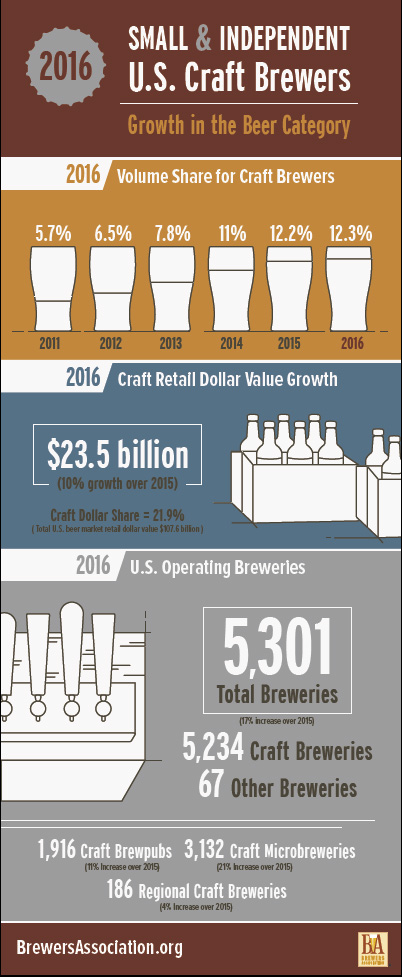Anheuser-Busch’s The High End division is not done shopping.
The brewing giant’s business unit focused on its specialty brands announced this morning that it has acquired Wicked Weed Brewing. Founded in Asheville, N.C., in 2012 by Walt and Luke Dickinson and lifelong friends Ryan, Rick and Denise Guthy, Wicked Weed is one of the breweries that has made Asheville one of America’s best known brewing destinations.
“This is an exciting time for the entire brewing team,” said co-founder Walt Dickinson. “Our ability to create a wide range of really well executed beers that are focused on creativity, quality and drinkability is what makes Wicked Weed great. We have chosen to partner with The High End to position ourselves to make Wicked Weed what we imagined it could be when we first sat at a craft beer bar and talked about opening a brewery. As a brewer, giving our team more resources to continue innovating our portfolio and the ability to reach more craft drinkers, allows us to keep putting the beer and the people first.”
Wicked Weed Brewing owns and operates four facilities in Asheville: their original Downtown brewpub where they produce over 150 different beers a year, the “Funkatorium,” the first dedicated sour beer taproom and barrel house on the East Coast, a 50-barrel production brewery in West Asheville, and the “Funk House and company headquarters,” a custom-designed brewhouse and training facility.
“We are excited to welcome Walt, Luke, Ryan, Rick, Denise, and the entire Wicked Weed team into our High End family,” said Felipe Szpigel, president, The High End. “It’s clear to me Wicked Weed is redefining what sophistication in beer can mean, with their amazing offerings being relevant in a wide variety of occasions. Their ability to brew the highest quality beers, in a variety of styles, along with their exciting barrel program, leads me to be optimistic about what our futures hold together.”
Since A-B InBev acquired Chicago’s Goose Island Beer in 2011 it has continued to purchase other regionl breweries, eventually creating The High End as a separate division. It includes brands such as Stella Artois and Shock Top as well as Goose Island, Blue Point, 10 Barrel, Elysian, Golden Road, Virtue Cider, Four Peaks, Breckenridge Brewery, Devils Backbone, and Karbach Brewing Co.


